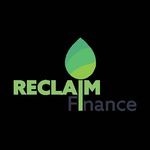STANDARD CHARTERED'S LEADING ROLE IN FINANCING 10 OF THE MOST DEVASTATING FOSSIL FUEL PROJECTS
←
→
Page content transcription
If your browser does not render page correctly, please read the page content below
P1 STANDARD CHARTERED’S LEADING ROLE IN FINANCING 10 OF THE MOST DEVASTATING FOSSIL FUEL PROJECTS Two days ahead of the fifth Paris Agreement anniversary, 18 NGOs released a joint report, Five Years Lost [1], showcasing 12 of the most devastating fossil fuel projects currently planned or under development. These expansion projects alone would use up three-quarters of the total remaining carbon budget if we are to have a 66% chance of limiting global warming 1.5°C. The 12 case studies highlight the immense environmental damage, violation of Indigenous rights, negative health impacts, and human rights concerns caused by each of the projects. In 10 out of the 12 case studies, Standard Chartered is among the top 30 banks financing the fossil fuel companies that are pushing the projects forward. In total, Standard Chartered has provided over $19 billion in loans and underwriting services to the fossil fuel companies featured in the report since January 2016. These case studies were chosen based on their detrimental local and global impacts. They are being pushed forward against local resistance and despite calls by scientists and numerous political leaders to phase out fossil fuels. [2] The case studies are: gas extraction in Mozambique; oil and gas development in Suriname; oil and gas drilling in the US Permian Basin; oil and gas extraction in Argentina’s Vaca Muerta region; coal and gas in Bangladesh’s Payra Hub; China’s new coal power plants; India’s coal mines; coal expansion in the Philippines; gas extraction as part of Australia’s Burrup Hub; drilling for oil and gas in the Norwegian Barents Sea; oil and gas projects and pipeline construction in the East Mediterranean; and offshore oil and gas drilling in the UK. February 2021
P2
STANDARD CHARTERED One of the last resorts for coal
finance in the Philippines?
Standard Chartered is the leading bank behind much cheaper electricity for a poverty-
the companies driving the expansion of the stricken country if fully developed. Standard
Philippines’ coal pipeline. Between January Chartered and other financial institutions
2016 and August 2020, Standard Chartered have contributed largely to coal’s expansion
has provided over $1.6 billion in loans in the Philippines, and are thus complicit
and underwriting services to Top Frontier to the continued suffering of coal-affected
Investment Holdings, the parent company of communities and rising costs of electricity
San Miguel Corporation (SMC). SMC is the from coal. It’s high time for these banks to
Philippines’ largest corporation in terms of hold themselves accountable by actually
revenue and one of the top three coal plant working towards alignment with the 1.5°C
developers in the country, with 3.4 GW of climate goal, and not just pretending to do so,”
additional coal capacity in the pipeline. says Gerry Arances, Executive Director of the
Center for Energy, Ecology and Development.
Standard Chartered has also provided project
finance for a coal plant with a total planned
capacity of 900 MW. [3] The Limay power
station, located in the Bataan province not far
from a wildlife sanctuary, is currently being
constructed and partially already operated
by SMC. In 2017, SMC saw itself faced with
violation notices after communities in Limay
reported respiratory problems caused by
fly ash from the plant. The plant’s testing
operations had potentially also resulted in ash
spills into a waterway. [4]
“If all coal currently in the pipeline in the
Philippines were to be built over the next
few years, it would continue to dominate
the country’s energy mix at around 60-70%.
This is unacceptable for a climate-vulnerable
country in dire need of transition, and simply
illogical given its abundant renewable energy
potential that exceeds the current national
power demand by at least ten times, promising
February 2021P4
WHY THE ENERGY POLICY UPDATE OF 2019 NEEDS AN URGENT REFRESH
Standard Chartered’s current energy policy is a recipe for climate chaos. Despite the warm words, it
allows the bank to continue funding the fossil fuel industry with almost no restriction. [5]
• The policy specifies a timeline for strengthening its exclusion threshold of coal companies based
on their percentage of earnings from coal. However, this timeline is far too slow and the starting
point is far too weak. While most of the coal infrastructures must be phase-out by 2030,
Standard Chartered plans to wait until 2025 to take a first real but tiny step - ending financial
support for companies with more than 60% of their earnings from coal. According to the Coal
Policy Tool, [6] 33 financial institutions exclude companies that generate more than 20% of
their revenues from coal, with 12 banks using an exclusion threshold up to 40%. Even Barclays
- no angels when it comes to fossil fuel finance - has a far more ambitious exclusion threshold,
currently at 5%.
• Standard Chartered’s policy allows the bank to keep supporting the majority of the coal
industry, including more than 329 companies with coal expansion plans. [7] Even when
Standard Chartered does lower its exclusion threshold, it is still based on a very limited metric
to define the coal companies they will not support. This means they can continue funding
some of the biggest coal companies in the world. Using ‘earnings’ (EBITDA) as the sole
measurement means that the policy misses out very large diversified coal companies - such
as large conglomerates - who are some of the world’s biggest contributors to climate change.
Other measurements must be included, such as total coal mined, or total electricity produced
by coal.
• The policy also does not give a final date for when the bank will fully end its support for the
coal industry, allowing it to profit from the world’s dirtiest fossil fuel well into the 2030s and
beyond. This is despite the need to phase-out coal at the latest by 2030 in all Europe and OECD
countries, and by 2040 in other countries.
• Finally, and perhaps most seriously, the policy does not put any real limits on investment in
oil and gas. Data from the Intergovernmental Panel on Climate Change and oil industry sources
show that developed reserves in existing oil and gas fields alone [8] would push the world
beyond the 1.5°C target defined in the Paris Agreement. It is impossible for a bank to credibly
claim to support the Paris Agreement without acknowledging this reality and taking appropriate
steps to bring financial support for the oil and gas industry to a swift end.
February 2021P5
WHAT STANDARD CHARTERED NEEDS TO DO
We call on Standard Chartered to urgently Standard Chartered must formulate and
close the huge loopholes on funding coal publish plans to align its financial services
and introduce limits on funding oil and gas. with the goals of the Paris Agreement, [10]
Because ‘here for good’ does not mean starting by immediately announcing a rapid
financing coal, or oil and gas. Standard phase-out of all support to the coal industry,
Chartered likes to say it cares about the and an end to financing all companies and
environment, but their actions say the projects that would expand the scale of the
opposite. ‘Here for good’ means creating a fossil fuel industry.
climate policy that does more than just make
the bank’s leaders feel good.
References
Since the Paris climate agreement was signed
in 2015 - which Standard Chartered says it [1] https://urgewald.org/sites/default/files/me-
supports - the bank has funneled $24.02 dia-files/FiveYearsLostReport.pdf
billion into fossil fuels. [9] Are these the [2] https://www.politico.eu/article/no-new-coal-un-
actions of a bank concerned about climate chief-tells-eu/
[3] https://www.gem.wiki/Limay_power_station#cite_
change? note-16
[4] https://businessmirror.com.ph/2017/02/19/lopez-
Banks that truly care about climate change asked-to-shut-down-bataan-coal-plant/
don’t fund the expansion of fossil fuels. [5] https://www.sc.com/en/sustainability/posi-
Standard Chartered announces new climate tion-statements/power-generation/
[6] https://coalpolicytool.org
policies with great fanfare, but these policies
[7] according to the GCEL, there are 329 companies
allow them to keep funding the climate crisis, among the ones that generate up to 90% of their reve-
with huge loopholes on funding coal and nues from coal, https://coalexit.org/
no limits on funding oil and gas. Standard [8] http://priceofoil.org/2016/09/22/the-skys-limit-re-
Chartered’s ‘here for good’ policies hardly port/
impact the bank’s ability to finance some [9] https://www.ran.org/bankingonclimat-
echange2020/
of the dirtiest companies in the world: coal [10] https://www.ran.org/wp-content/up-
companies. loads/2020/09/RAN_Principles_for_Paris-Aligned_Fi-
nancial_Institutions.pdfYou can also read
























































